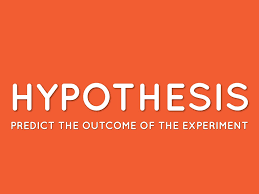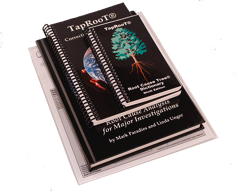Is Starting with a Hypothesis a Bad Practice?

Do You Start With a Hypothesis?
An article in Quality Progress magazine (Solid Footings) suggests that a hypothesis is the basis for a root cause analysis. We have discussed the problems of starting a root cause analysis with a hypothesis previously, but it is probably worth discussing again.

Don’t Start With the Answer (a Hypothesis)
What is Wrong With Starting With a Hypothesis? Starting with the answer (a hypothesis) is a bad practice.
Why? Because of a human tendency called “confirmation bias.” You can read about confirmation bias in the scientific literature (do a Google search) or read THIS ARTICLE, but the simple answer is that people focus on evidence that proves their hypothesis and disregards evidence that conflicts with their hypothesis. This natural human tendency is difficult to avoid if you start with a hypothesis.

I’ve seen many root cause experts pontificate about investigators “keeping an open mind” to disprove their own hypothesis. That’s great. That’s like saying, “Don’t breathe.” Once you propose an answer … you start to believe it and PROVE it.
What Should You Do?
Use a system that doesn’t start with a hypothesis. Try TapRooT® Root Cause Analysis.

You will learn to use a SnapCharT® Diagram to collect information about what happened without jumping to conclusions.
Once you understand what happened and identify the Causal Factors, you will be ready to analyze why the Safeguards failed (find the root causes) without jumping to conclusions using an advanced tool – the Root Cause Tree® Diagram.

This system gets you to think beyond your current knowledge.
The system has been proven to work at major companies and different industries around the world.
Learn More About Advanced Root Cause Analysis
Want to learn more to improve quality and safety at your company? Attend one of our public root cause analysis courses.
See the variety of courses HERE.
See the dates and locations of upcoming public courses HERE.




